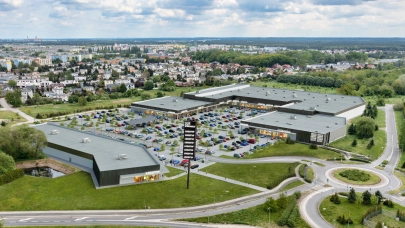
Savills has examined both employee-driven and occupier/employer-driven factors to assess which global cities may see a faster transition to hybrid working post-COVID-19. From an office occupier perspective, New York, Paris, London, Berlin and Frankfurt may be primed for a faster transition to hybrid working, given comparatively high office costs, already flexible working practices and extended lockdowns, while less flexible working cultures in Mumbai, Shanghai and Ho Chi Minh City mean that any transition to hybrid working may be slower.
As part of its 2021 global Impacts research programme, the international real estate advisor looked at metrics such as the size of people’s homes, broadband speeds and commute times, alongside employer/occupier-focused factors, such as the cost and efficiency of offices, workplace culture, and lease lengths to grade cities on their possible speed of migration to hybrid working.
Large homes and long commutes make Los Angeles, for instance, ripe for hybrid working from an employee perspective, says Savills, though comparatively low office costs, long leases and a diversified economic base mean employer incentives to cut space may be lower than in some other cities. Smaller cities such as Lyon and Amsterdam, meanwhile, are likely to see a slower shift to hybrid working, given shorter commutes for employees and lower costs to office occupiers.
Jeremy Bates, Head of EMEA Occupier Services at Savills, comments: “Transition to a hybrid workforce is the biggest challenge businesses are going to face in the next five years. Even if you’re in a city set to switch more slowly it’s likely going to be something you’ll have to manage, and given low office availability in many locations, it’s better to start looking sooner rather than later to find space that will work for you in a hybrid model. With more collaborative space and increased room per employee likely, even if you have fewer people in the office you’re likely to still need a similar quantum. But this space will need to deliver efficient hybrid working, which involves designing a balanced physical-digital ecosystem that effectively bridges the gap between remote and office-based workers in terms of experience, accessibility and reliability.”
Paul Tostevin, director, Savills World Research, adds: “Locations such as Paris, London, Berlin, Frankfurt and New York which have higher office rents and relatively flexible working practices could see firms examining a hybrid working strategy more rapidly than other cities. But this may be outweighed by longer lease lengths, slower home broadband speeds and – in some cases – smaller homes, which may mean employees themselves push for a return to the office. As Asian cities experienced much shorter lockdowns and some – notably in China – returned straight to full-time office working, most will be slowest to transition to hybrid working. Small dwelling sizes mean that employees also support working from the office.”
According to the report, Warsaw, the largest office market in Poland, positions roughly in the middle of the ranking. Factors that favour companies’ faster transition to the hybrid model include the length of standard lease terms and a certain degree of flexibility that was slowly implemented by companies even before the pandemic. On the other hand, factors that are slowing the transition process are internet speed in some locations and rental level, which is still competitive with Western Europe and creates conditions for all employees to be provided with a physical/traditional workplace in the office.
Jarosław Pilch, Head of Tenant Representation, Office Agency, Savills Poland, says: “Remote work, especially in the home edition, is associated with numerous challenges. Many people, when arranging their homes, did not arrange a place to work, especially one that is suitable for working full-time for a long time. The introduction of a hybrid work model is a process whose pace will vary depending on the country and the specificity of the industry in which a given company operates. Many employers in Poland have not yet decided how they want their work model to look like after the pandemic. The reasons for that, among others, are the ongoing analysis of the expectations and experiences of employees, waiting for the changes in the labour law, or the time needed for observations of the real estate market and exploring new opportunities that the market currently creates for tenants.”



